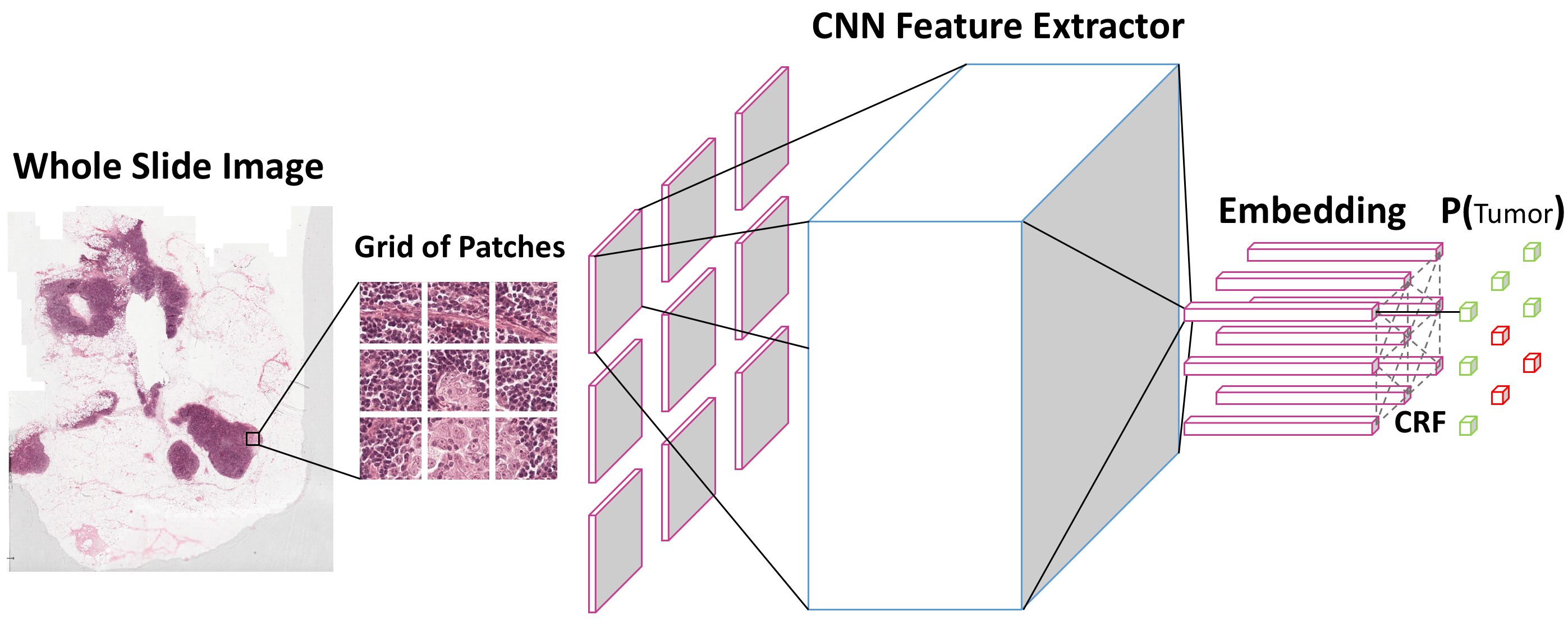Cancer Metastasis Detection With Neural Conditional Random Field
Breast cancer diagnosis often requires accurate detection of metastasis in lymph nodes through Whole-slide Images (WSIs). Recent advances in deep convolutional neural networks (CNNs) have shown significant successes in medical image analysis and particularly in computational histopathology. Because of the outrageous large size of WSIs, most of the methods divide one slide into lots of small image patches and perform classification on each patch independently. However, neighboring patches often share spatial correlations, and ignoring these spatial correlations may result in inconsistent predictions. In this paper, we propose a neural conditional random field (NCRF) deep learning framework to detect cancer metastasis in WSIs. NCRF considers the spatial correlations between neighboring patches through a fully connected CRF which is directly incorporated on top of a CNN feature extractor. The whole deep network can be trained end-to-end with standard back-propagation algorithm with minor computational overhead from the CRF component. The CNN feature extractor can also benefit from considering spatial correlations via the CRF component. Compared to the baseline method without considering spatial correlations, we show that the proposed NCRF framework obtains probability maps of patch predictions with better visual quality. We also demonstrate that our method outperforms the baseline in cancer metastasis detection on the Camelyon16 dataset and achieves an average FROC score of 0.8096 on the test set. NCRF is open sourced at https://github.com/baidu-research/NCRF.
PDF Abstract

